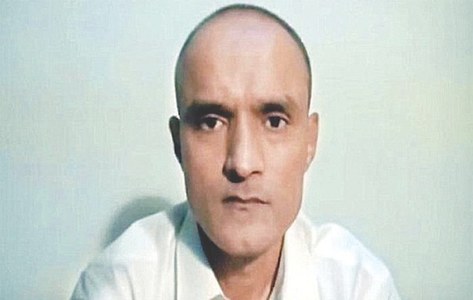ISLAMABAD: Attorney General Ashtar Ausaf has said that Pakistan signed the March 29 declaration with the International Court of Justice (ICJ) to create firewalls for the first time and national security concern was among the reservations listed by Islamabad over the world court’s jurisdiction in the case of Indian spy Kulbhushan Jadhav.
Dispelling the impression that Pakistan agreed to the jurisdiction of the ICJ in such cases only in March this year, he said in a statement that Pakistan had signed an unconditional declaration to agree to the jurisdiction of the world court way back in September 1960.
The original declaration, the AG explained, was without any reservations and exceptions and through it Pakistan had agreed to an ipso facto compulsory jurisdiction of the ICJ. “In plain words we had made no exceptions or reservations in the earlier declaration.”
Govt’s top lawyer hits back at critics, says March 29, 2017 declaration was signed to create firewalls
The AG’s comments were in response to the criticism by some legal experts of the country’s strategy in the case. They are of the view that Pakistan should have withdrawn its March 29 declaration immediately after the Indians took the Jadhav case to the ICJ and should not have contested the case.
The criticism came after the ICJ restrained Pakistan on Thursday from executing the convicted Indian spy until a final verdict in the case.
“The impression being created as if we agreed to compulsory jurisdiction of the ICJ in March with a sinister motive is not true,” Mr Ausaf said. “Rather in March we created firewalls, including the one relating to security of Pakistan, for the first time.”
But in any event, he said, the ICJ was not looking at that aspect of the matter rather they were looking at the Vienna Convention and the optional protocol to the convention to which both India and Pakistan were signatories.
“The optional protocol invests the ICJ with powers and jurisdiction to decide disputes between member states,” he said, adding that the international court was not looking at the aspects being referred to on social and electronic media.
“There is no design or sinister motive behind the conditional declaration signed in March this year,” he said. “If we were to withdraw this declaration, we would have to go back to the 1960 declaration, which gives jurisdiction to the ICJ without exceptions.”
Meanwhile former chief justice Iftikhar Mohammad Chaudhry has said that the ICJ had no jurisdiction to entertain the Indian request since the Jadhav case does not fall within the definition of the contentions on the basis of which only the world court can exercise jurisdiction.
Talking to reporters, he said that the ICJ had erred in law to ignore 2008’s bilateral agreement between India and Pakistan on consular relations only to assume jurisdiction not vested in it.
He said Pakistan had a foolproof strong case based on cogent reasons to decline relief to India, particularly for the reason that the ICJ had no jurisdiction coupled with the fact that Article 1 of the optional protocol was not relevant to consular access to a criminal involved in terrorism.
Moreover, he said, the provision of Article 26(2) of ICJ statute was not followed as the number of judges to constitute the bench was required to be determined by the court with the approval of the parties.
According to Article 31(1) of the statute, it was obligatory on the court to appoint an ad hoc judge as the nominee of Pakistan as it had already happened in 2000 in the case relating to the shooting down of a Pakistani aircraft wherein India and Pakistan both nominated their representative judges.
Published in Dawn, May 20th, 2017
































